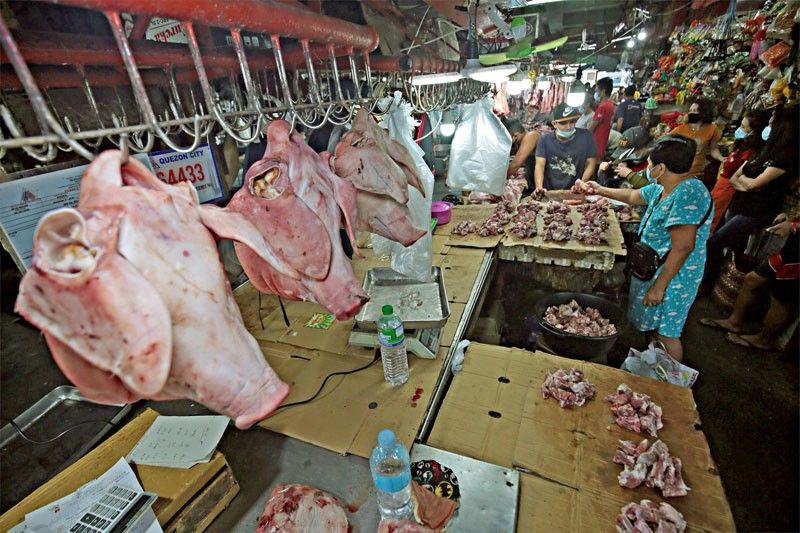Palace urges traders to keep selling pork as government tries to up supply

MANILA, Philippines — Malacañang on Moday urged traders to continue selling pork as some groups hold a "pork holiday" to protest the government-imposed price caps on their products.
According to the Public Information Office of the City of Manila, traders in the capital city only opened shop to sell off remaining stocks but that nobody else was selling pork in the city.
Presidential spokesman Harry Roque said the government has stepped up measures to help pork vendors and to ensure enough supply of pork in the market.
"On the part of traders, they said they won't sell pork for now because they think the price ceiling is very low. On the part of consumers, they have the advocacy encouraging us to eat alternative protein sources," Roque said at a press briefing.
"Well, we support the advocacy on alternative pork sources but we urge traders to continue selling pork," he added.
Late last month, President Rodrigo Duterte signed Executive Order No. 124 setting a price ceiling of P270 per kilo for kasim or pork shoulder; P300 per kilo for liempo or pork belly; and P160 per kilo for dressed chicken.
The order seeks to ensure that basic necessities are adequate and affordable, noting that the reduced pork supply caused by the African swine fever (ASF) has led to price hikes.
The imposition of the price caps was opposed by pork traders and vendors who claimed that they are not realistic given the soaring transport and production costs.
Government working to increase supply
Roque said the government is planning to buy pork from the Visayas, Mindanao, and parts of Luzon that were not affected by the ASF. He said South Cotabato-based swine producers have agreed to supply Metro Manila with 10,000 heads of hogs every week. The pork products that will come from South Cotabato cost P145 per kilo, Roque added.
"The government will buy them (pork) and will bring them to the markets so we won't lack supply," the Palace spokesman said in Filipino.
Roque said the government would also provide subsidies for the transport of pork products. Pork coming from Mindanao will be provided with P21 per kilo transportation subsidy while those from the Visayas would be given P15 per kilo subsidy. For pork coming from Luzon, the transportation subsidy will be P10 per kilo.
"We also have financial or loan assistance for pork vendors. Usually, wholesalers provide such loans. Now, the government will provide them," Roque said.
If the pork products from domestic sources are not enough to meet market demand, the government may turn to suppliers in other countries but Roque said it would be "a matter of last recourse."
Roque claimed the government has anticipated the effects of the price cap.
"All economists will say that one of the effects of a price cap is the limited supply because they (sellers) won't sell goods at lower prices. But the government has done something. We are increasing the supply... The Department of Agriculture is looking at other sources of supply," Roque said.
"I think the effect of the price cap has been anticipated but we need to do it. Meanwhile, while we are increasing the supply or pork, we should have alternative sources of protein like fish and vegetables with high protein content," he added.
- Latest
- Trending


































